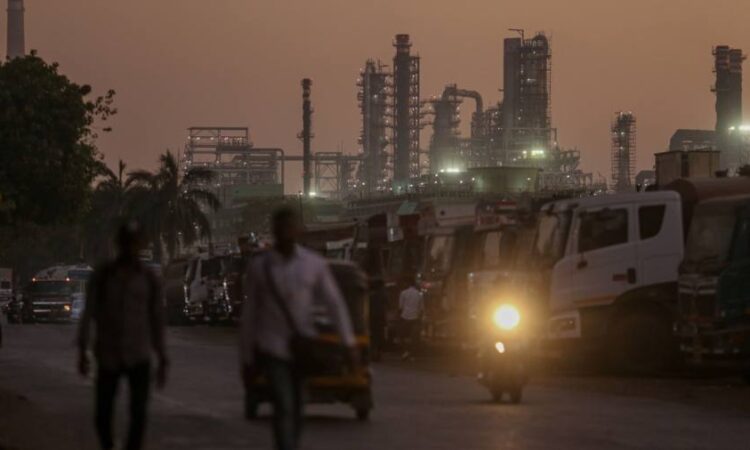
The EU should crack down on India reselling Russian oil as refined fuels including diesel into Europe, the bloc’s chief diplomat has said, as western nations move to tighten sanctions on Moscow’s energy sector.
Josep Borrell, the EU’s high representative for foreign policy, told the Financial Times that Brussels was aware that Indian refiners were buying large volumes of Russian crude oil before processing it into fuels for sale in Europe, saying for the first time the EU should act to stop it.
“If diesel or gasoline is entering Europe . . . coming from India and being produced with Russian oil, that is certainly a circumvention of sanctions and member states have to take measures,” Borrell said.
India has become one of the biggest buyers of Russian crude oil since the invasion of Ukraine, with its refiners earning large margins by buying heavily discounted crude that is now largely barred from the EU, before selling full-priced fuels into Europe.
The trade is legal under EU sanctions but has been criticised by those who want to see harsher sanctions imposed on Russia and argue that it has allowed Moscow to keep earning large revenues from its oil sales — the biggest component in the Kremlin’s budget.
Borrell acknowledged that the G7 price cap — which aims to limit Russian crude oil sales to other countries to $60 a barrel — had helped cut Russia’s oil revenues, and said it was understandable India wanted to take advantage of cheaper crude.
But he suggested he was uncomfortable that much of that oil was now flowing back to Europe in the form of refined fuels.
“That India buys Russian oil, it’s normal. And if, thanks to our limitations on the price of oil, India can buy this oil much cheaper, well the less money Russia gets, the better,” Borrell said.
“But if they use that in order to be a centre where Russian oil is being refined and by-products are being sold to us . . . we have to act.”
Borrell’s comments come ahead of a meeting on Tuesday with India’s foreign minister, S Jaishankar, where he will raise the issue, he said. India’s prime minister Narendra Modi is also likely to come under pressure from G7 leaders at a summit in Japan where tackling sanctions evasion will be a key discussion topic.
A price cap coalition official said that they believed that the policy was meeting the twin aims of restricting Russia’s revenue while keeping supplies in the global market, and said they were “confident it could weather any fluctuations in individual jurisdictions’ import policy”.
“Russian oil exports have been remarkably stable since the price cap was implemented despite Russia’s claims they would be cutting production,” the official said.
“We’re confident we’re a very long way from undermining the success of the price cap.”
Targeting refined fuel exports would mark a significant step-change in the west’s sanctions regime, which has tried to balance a desire to curb Moscow’s revenues with the risks of losing too much supply from the global market. Separately, the G7 and EU are willing to ban Russian gas imports on routes where Moscow has already cut supplies, the FT reported.
But on oil, the US in particular is worried about the potential for prices to rise, harming the world economy and potentially even providing Moscow with higher revenues even if Russian export volumes fall.
Adding to the complexity is the fact that existing sanctions, including those on Iran and Venezuela, have generally accepted that once crude is refined, it is no longer designated as being from the country the crude originated in.
Indian refiners, for example, use crude from multiple different countries including Russia, making identifying the exact origin of a barrel of diesel or gasoline challenging.
A dissuasive effect may be generated, however, even by just talking about potential sanctions. One oil analyst said India or other countries could stop buying Russian crude if they thought the EU market could be cut off as a destination for their refined fuels. Russia is the world’s second-largest crude oil exporter after Saudi Arabia, and there are already concerns the global oil market will tighten later this year, boosting prices.
Borrell said that any mechanism to stem the flow of Russian oil would need to be implemented “by the national authorities”, suggesting the EU could target buyers of Indian refined fuels they believe are derived from Russian crude.
“If they sell, it is because someone is buying. And we have to look at who is buying,” he said.






